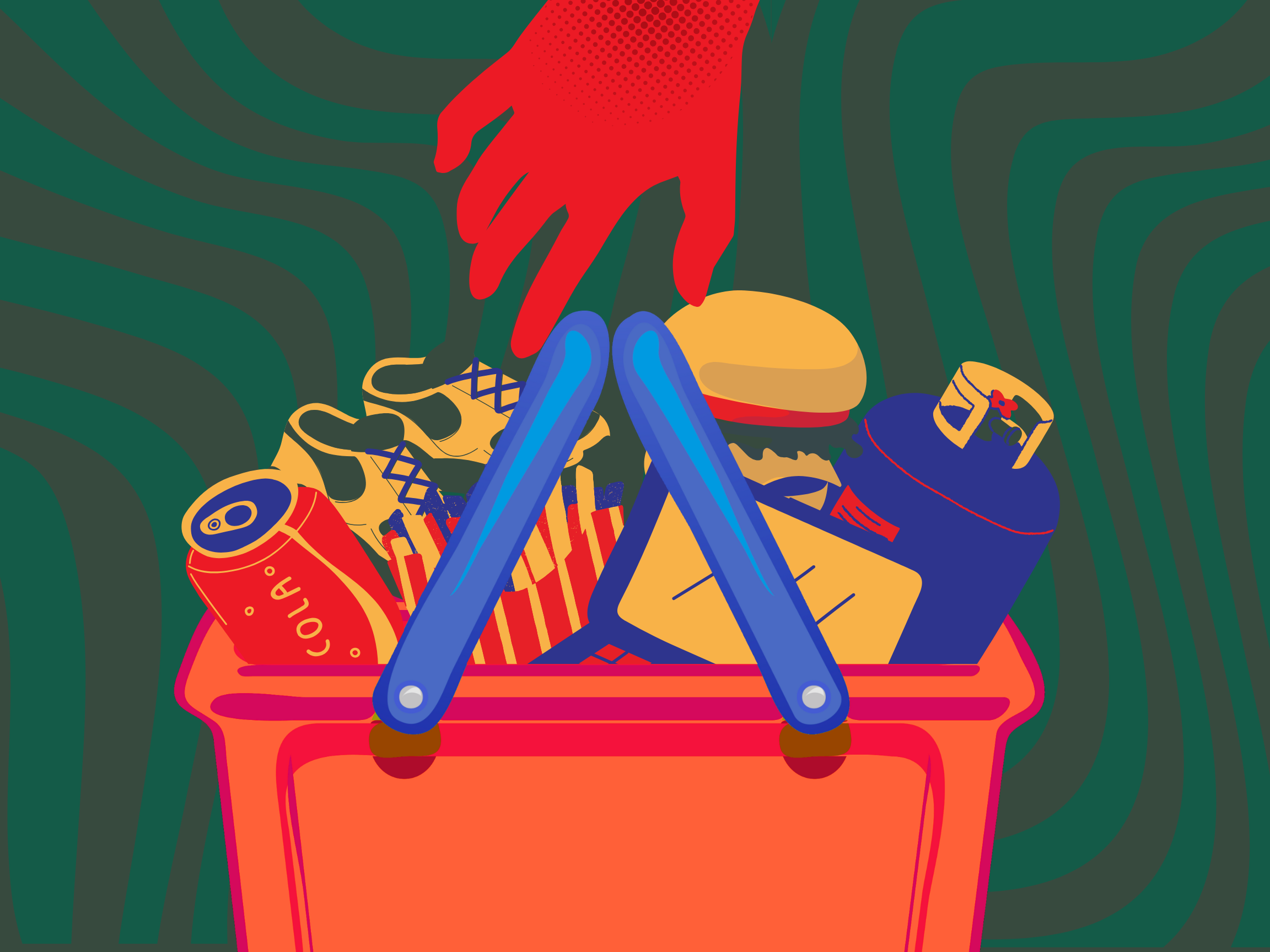Starving the System: The Power of Resistance Through Boycott
We see you. We will not support you. We will not sustain you.
A system fortified by occupation cannot survive on its own—it must rely on external lifelines to maintain its grip. This dependency becomes clear as the world witnesses the sustenance of oppression by the never-ending flow of financial aid, military power, political shielding, and diplomatic endorsements. Without this, the machinery of control would falter.
As an article I read from Northeastern Global News points out, the notion that some companies may seem too large to be affected by boycotts leads to a mindset similar to voter apathy—when people believe their actions don’t matter, they become less likely to act. Indeed, as individuals observing this dynamic from the other side of the barbed wire, resistance feels daunting. How do we, the people, small and scattered, challenge something that seems unbreakable?
The answer lies in collective refusal. No singular act will dismantle the system, but resistance is never a solitary effort. It is an accumulation of deliberate choices, seemingly small acts of defiance, that over time contributes to the erosion of a complex web of power. A drop of protest here, a denial there, each one seemingly insignificant on its own. But together? Together, we can starve the system from many angles, and that is where our power lies.
This regime thrives on the illusion that individual actions don’t matter. It wants us to believe that the companies we support or the institutions we fund are insignificant in the grand scheme of its power. The BDS (Boycott, Divestment, Sanctions) movement, established by Palestinian civil society groups in 2005, aims to address international complicity in what it describes as apartheid and settler colonialism, as reported by Al Jazeera. Inspired by historical struggles against injustice, BDS encourages boycotts of companies and products that support oppressive policies, targeting consumer, governmental, and institutional ties to the occupation. Its approach underscores that collective individual actions can drive change and hold powerful systems accountable.
Art By: (Hannah Arabella Gabling//The Underground)
The movement’s influence has drawn significant backlash from Israel, which in 2006 established a Ministry for Strategic Affairs—originally created to handle broader security threats—shifted its focus to label BDS as a major threat according to Middle East Monitor. By 2015, this ministry—originally created to handle broader security threats—shifted its focus to label BDS as a major threat, casting the movement and its supporters as anti-Semitic. This response, fueled by concern over BDS’s growing support, reveals that individual actions, when unified, indeed pose a real challenge to entrenched power structures.
This power structure is inherently fragile, and it is spread thin across multinational corporations, arms industries, government policies, and tech giants. The complexity of this web makes it vulnerable. Every time we refuse to buy from companies complicit in oppression or divest from institutions financing occupation, we cut another string that holds the system together. Beyond an economic tactic, boycotting is a reclamation of personal agency. It shows that resistance isn’t passive—it’s active, intentional, and deeply personal. Each instance sends a powerful message overseas:
We see you. We will not support you. We will not sustain you.
Systems like these depend on complicity. Complicity is not stagnant. Resistance through boycott makes us unpredictable, which the system fears. It cannot force compliance when we disengage, and the more people who refuse to participate, the harder it becomes to sustain itself. We cannot topple an entire system overnight, but we can slowly but surely crack its foundation.
It’s easy to express solidarity in words, but real resistance asks more of us, especially when it comes to the everyday choices we make. There are those who say they care deeply about the oppressed, yet still line up for their daily drink from Starbucks, perhaps unaware but realistically unconcerned that their dollars contribute to companies entangled in systems of occupation.
This isn’t about villainizing those choices; it's about recognizing that where we spend our money matters.
Every dollar is a small vote, a signal of what we are willing to sustain.
The good news? Every brand has an alternative. Coffee from independent roasters, community cafés, or local shops can offer the same joy as a major corporation. Resistance doesn’t have to feel like deprivation. Rather, it can be a chance to align our values with our actions and discover new ways to nourish ourselves, free from ties to oppression.
The struggle will be long, and the road to liberation will not be easy. But with every boycott, every divestment, every refusal to engage, we grow into a force that the system cannot control. Resistance is not about waiting for someone else to pull the plug. It’s about recognizing that the power has always been in our hands, and deciding when it is time to use it.
